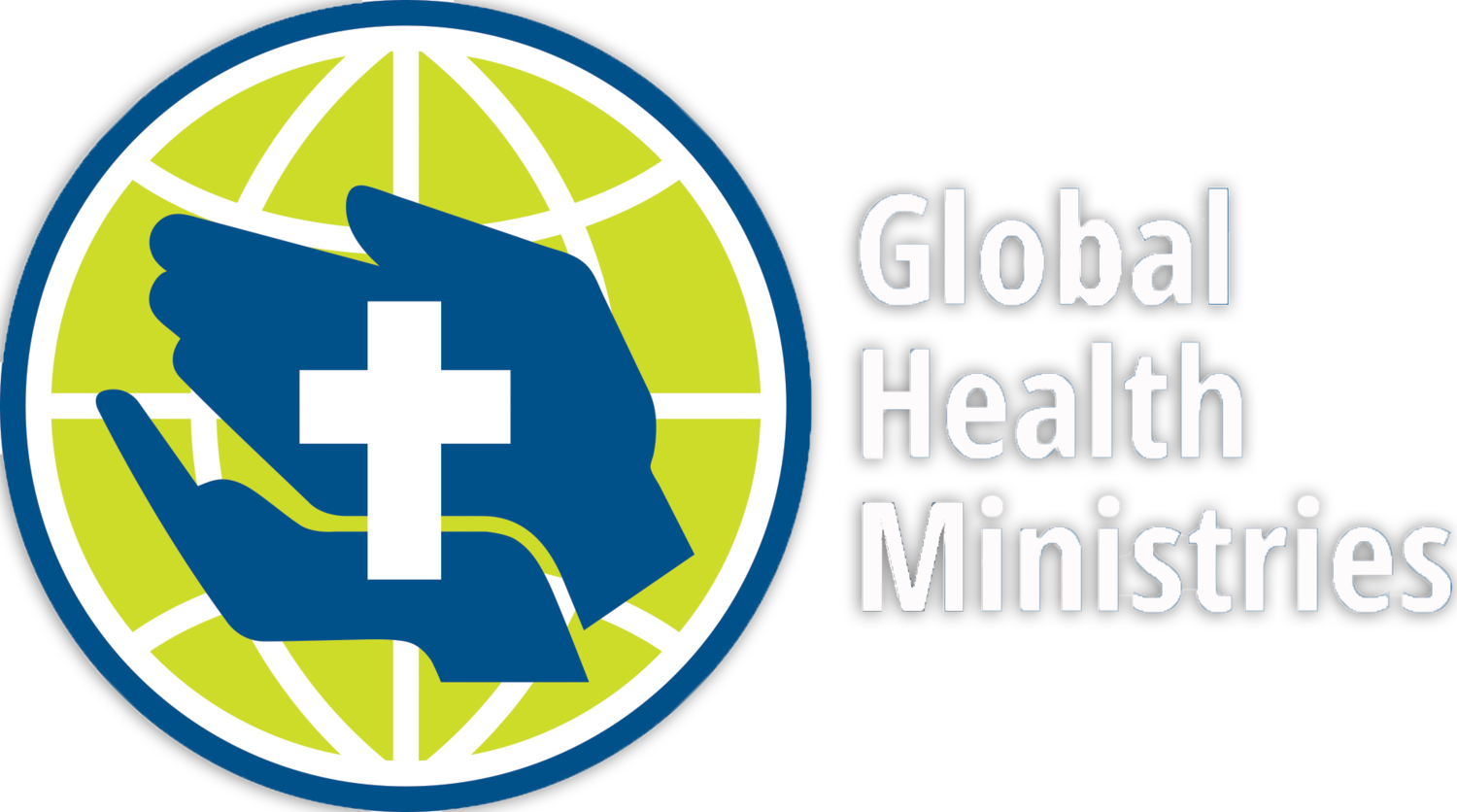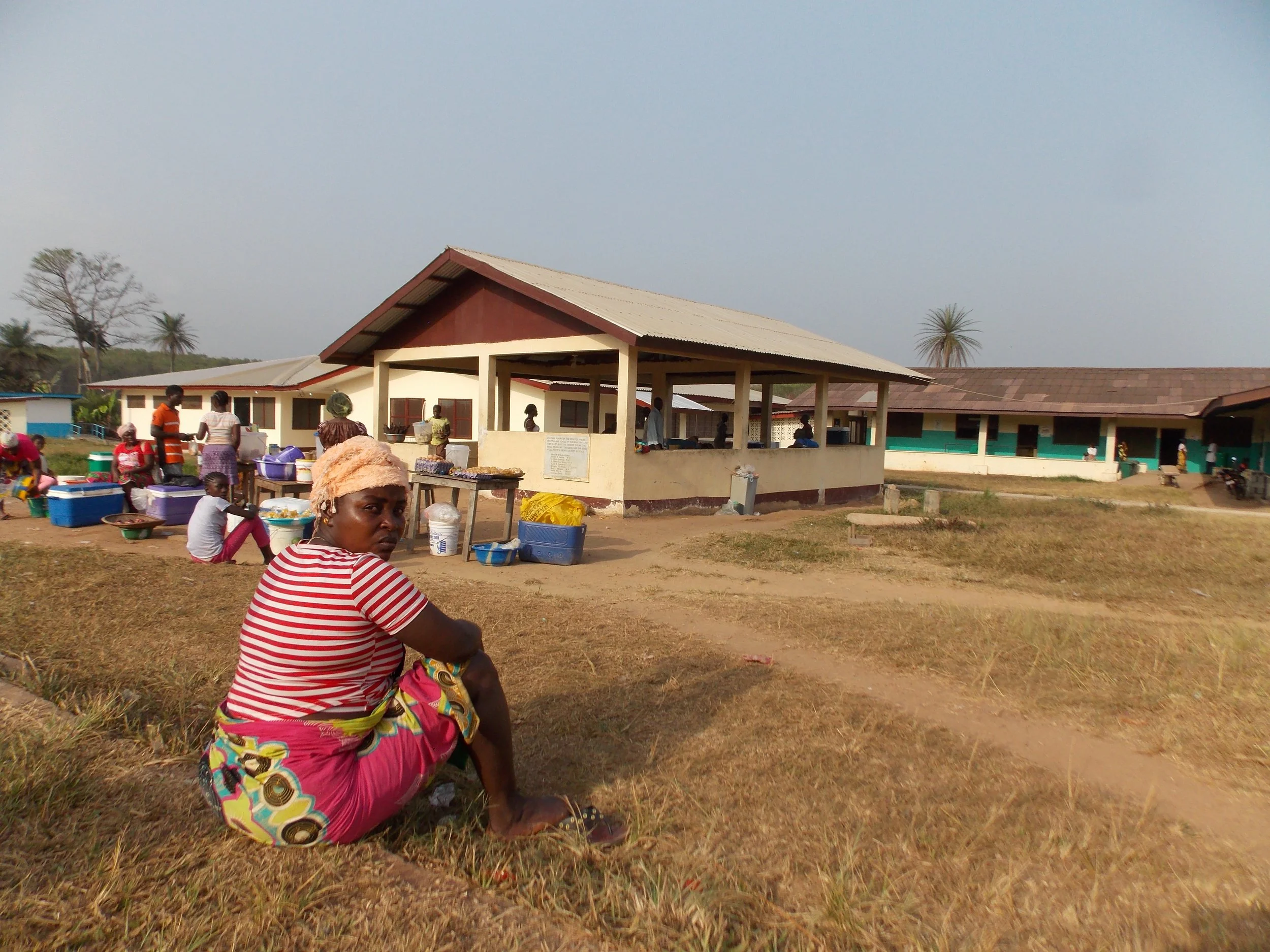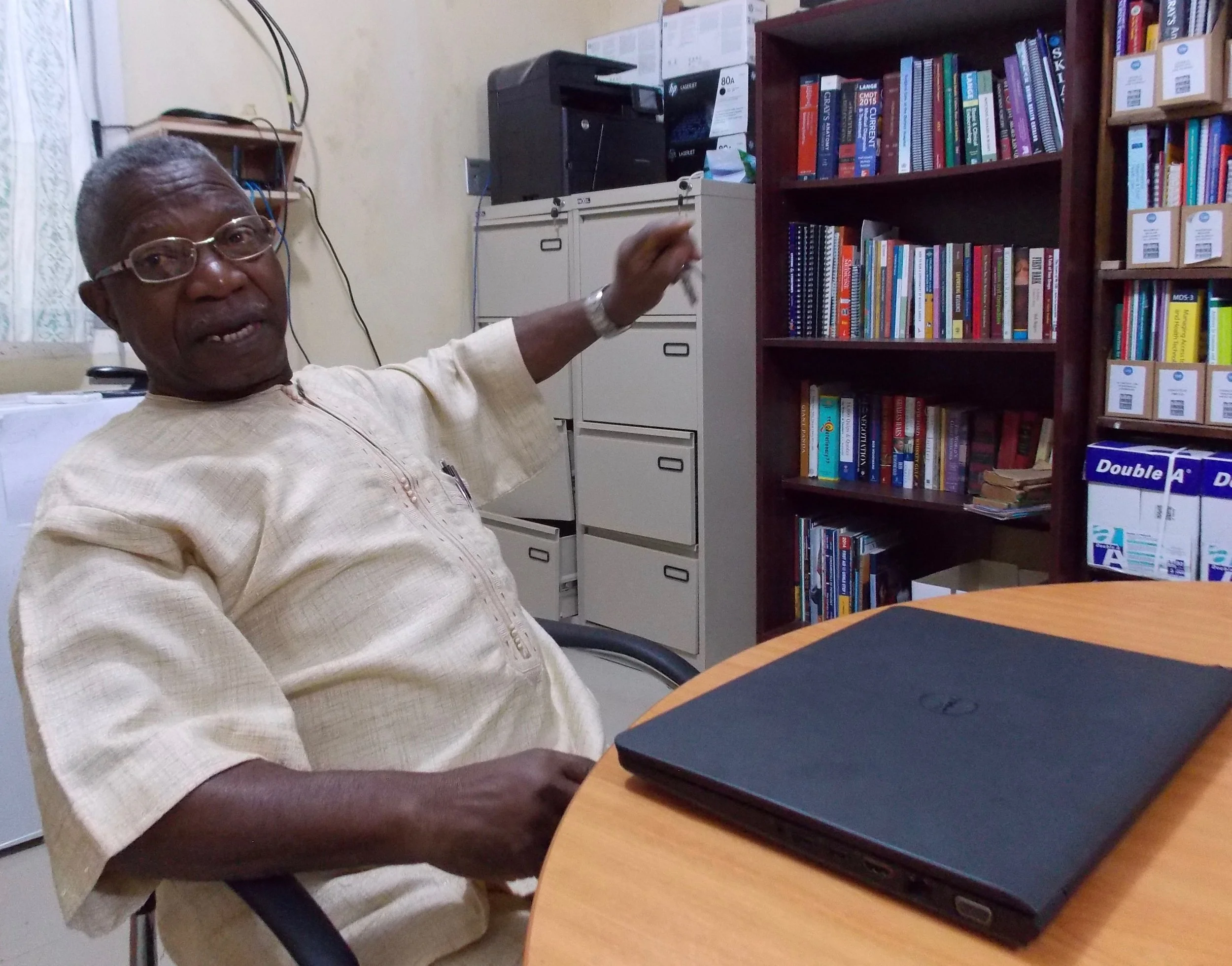A Tribute to Walter T. Gwenigale, MD
“God is within her, she will not fall; God will help her at break of day.”
On July 26, Liberians everywhere (including thousands in Minnesota!) celebrate the National Day of Liberia, marking 175 years as Africa’s first independent republic. Even as we celebrate this milestone year with our Liberian friends, we want to remember a special man who contributed significantly to his country’s story. That man is Dr. Walter T. Gwenigale, whose death this past April has left many still mourning his loss. Like Liberia itself, whose history is peppered with examples of perseverance in the face of great challenge, Dr. Gwenigale faced enormous challenges with great fortitude. The legacy he left behind is one of inspiring perseverance under pressure, constant advocacy for his nation and his staff, and a lasting, unshakable faith in God.
An overview of Dr. Gwenigale’s credentials was included in a paragraph of his obituary in the Liberian Observer, stating that Dr. Gwenigale “served as a practicing surgeon for more than 30 years, including during the civil war. He was Bong County health officer, director of Phebe Hospital, and president of the Christian Health Association of Liberia. He also served on the World Health Organization’s executive board and as a board member of the Roll Back Malaria campaign.”
Dr. Gwenigale was not only a talented physician and surgeon but also a public health leader, responsible for dozens of rural clinics across Bong County, and a skilled healthcare administrator. In 2006, he was appointed Minister of Health and Social Welfare of the Republic of Liberia by the country’s President, Ellen Johnson Sirleaf. It was a role he filled with distinction until he “retired” in 2015. Even in retirement he continued to work to strengthen the Liberian healthcare system. Despite his impressive credentials, it became clear from interviews with former colleagues that Dr. Gwenigale was friendly and approachable, at heart a humble man who was quick to credit his community of staff and colleagues, and God, for his successes. Colleagues and staff alike affectionately called him "Dr. G" or simply "Doc."
Dr. G grew up in the Liberian Lutheran community, which sponsored his education. The beginning of his medical career was also sponsored by the Lutheran Mission in Liberia who, because there wasn’t an accredited medical school in Liberia at the time, sent him to the University of Puerto Rico for training and his surgical residency. Dr. G went into medicine to help his people, and even as he left Liberia, he knew he would return to practice medicine in his own country. Still today, a shortage of health workers makes access to healthcare a challenge for many in Liberia, particularly in rural areas.
Dr. G was born in Kpotoloma, Bong County, and returned to Bong County after residency. In 1973 he became the first Liberian doctor employed at Phebe Hospital, the Lutheran Church’s original “mission” hospital in Liberia, and by the next year, he was named Phebe’s Medical Director. Dr. G was an ardent advocate for Phebe. By order of the President, Deweh E Gray, Acting Minister of Foreign Affairs, wrote this in The Liberia Official Gazette’s Celebration of Life: “Phebe Hospital was in dire financial straits, and its Board decided before the Gwenigales’ arrival to downgrade the hospital to a health center. To turn the tide, Dr. G reached out to the Liberian media with the help of his brother-in-law, Kenneth Best, to draw national attention to Phebe’s plight. They published stories in the Liberia Age newspaper and Liberian Star newspaper, the leading newspapers at the time. This coverage caught the attention of President William R. Tolbert, then President of Liberia, who directed his Minister of Health & Social Welfare, Hon. Oliver Bright, to incorporate Phebe Hospital into the public health system and oversee its designation as a referral hospital for Bong County.” Dr. G was not only an ardent advocate for Phebe, he was effective.
Dr. G was also a stubborn advocate for his employees, laboring to increase salaries and improve living conditions of hospital workers throughout his career. Many former employees have cited Dr. G's advocacy for them personally as the reason they decided to continue their work at Phebe despite the struggles of the civil wars.
Dr. G would remain in his position as director of Phebe Hospital for almost 30 years, many of them marred by intense political turmoil and violence in Liberia. Six years after Dr. G took the helm at Phebe, the government of Liberia was overthrown in a military coup, ushering in years of instability and fighting and culminating in two consecutive civil wars. War would wrack Liberia for 14 years, with more than 200,000 Liberians killed and at least a million displaced. Through it all, as hospitals and clinics across the country were destroyed or abandoned, Dr. G chose to remain at Phebe. Under his leadership, and despite being forced to move several times, Phebe continued to operate throughout the war. Dr. G credited God’s protection for helping so many at Phebe survive the war, but it was also Dr. G’s egalitarian approach that protected the hospital, her staff and patients. Dr. G’s approach was to treat every person who came to the hospital for help, including soldiers on both sides of the conflict, regardless of affiliation or tribe or ability to pay. Like Lutheran mission hospitals across the world, Phebe under Dr. G provided (and still provides) treatment for all, in the name of Christ.
Phebe did not escape the war unscathed. When Dr. G first arrived, the hospital was a modern, well-equipped facility, built only a few years before with help from the Lutheran Church in America and others. The hospital had been relocated to Bong County, moved deeper into the interior of the country, helping bring access to healthcare to people in central Liberia. Some called it the “Iowa hospital” in the middle of Liberia and it wasn’t that different from a small hospital in rural Iowa. At night as a person topped the hill on the road approaching Phebe the whole sky appeared lit up above the hospital – electricity! There were windows, doors, air conditioning, electric ranges and refrigerators in staff housing.
By the end of the war, Phebe was still standing, but most of the equipment had been irreparably damaged, the hospital looted and buildings and wards damaged, supplies stolen. In a horrific massacre in September, 1994, soldiers killed several Phebe employees, the chaplain and hundreds of patients, including Dr. G’s mother. Dr. G and his dedicated staff had managed to keep Phebe functioning through the war – a beacon of hope, like the hospital itself. Nevertheless, the damage was significant and the hospital almost unrecognizable, not unlike Liberia whose infrastructure was so damaged that twenty years later the country has still not fully recovered.
Dr. G retired as Phebe's medical director in 2003 after the wars had ended, but his advocacy for Liberia did not end there. Between 2003 and 2005, Dr. G spent half of his time in Puerto Rico with his family and the other half at Phebe Hospital. In 2005, he supported Ellen Johnson Sirleaf in her bid to become the first female president of Liberia and the first democratically-elected female head of state in the entire African continent. She won the election, and Dr. G took on the role of Minister of Health and Social Welfare. While in that position he worked to rebuild the Liberian healthcare system that he had helped sustain through the wars. He identified three issues that he primarily had to address, each a consequence of war:
o The shortage of trained medical workers
o The damage the wars had done to the healthcare infrastructure
o The country’s lack of money
Dr. G gave a rousing appeal to American Lutherans during this time, asking the same group who had supported him throughout his career for their renewed support for Liberian healthcare. Dr. G did not mince words in his appeal. He emphasized practical solutions, saying "shaking your heads in sympathy will not save one little baby from dying from dehydration, or restore the sight of one old woman with cataracts. Sympathy is lovely...but we need your active involvement now!"
Global Health Ministries was founded to answer calls like this one. GHM’s relationship with Dr. G goes back 35 years to the organization’s founding in 1987, when Dr. G was already serving as Phebe’s Medical Director and Bong County health officer. In fact, GHM’s very first grant was for a community-based primary healthcare program in Liberia. Throughout the war years, GHM successfully shipped containers of medical supplies and equipment to Liberia to help Phebe and others keep going. One of Dr. G’s great gifts was his ability to build relationships and tap resources in his network to help the Liberian people. GHM was one of those resources.
During the 2014 Ebola crisis, which Dr. G navigated carefully and clearly, he demanded the best for his nation. Dr. G reached out to many NGOs for support during the Ebola crisis, including GHM. In answer to his urgent request for assistance, GHM quickly airlifted pallets of biohazard suits and medical supplies to Liberia to help protect hospital staff who would treat Ebola patients. Two shipments of five pallets each went out by air freight almost immediately, including one of the first shipments to arrive in Liberia. Air carriers stopped flights to Liberia shortly after GHM’s second shipment arrived. Again at Dr. G’s urging, GHM followed up with two back-to-back 40’ sea containers sent to the Ministry of Health in response to the Ebola crisis. During the Covid-19 pandemic GHM has continued to ship personal protective equipment to protect healthworkers in Liberia. After he retired from his role as Minister of Health, Dr. G continued to work on developing Liberia’s healthcare infrastructure, most recently focused on creating a digital library to provide access to medical information for healthworkers across the country, including in remote, rural areas. It was a project GHM was proud to support.
It’s almost impossible to summarize the life and impact of a man like Dr. Walter T. Gwenigale. Motivated by a strong sense of duty – to the Lutheran Church that helped shape him, to his family, his patients and staff, to Liberia, to God – he had a profound influence on healthcare in his country. He inspired others to join him in his efforts, including a host of international NGOs as well as faith-based organizations from a variety of denominations.
Psalm 46 is the passage Dr. Gwenigale turned to as he anticipated impending war, sharing those words from the Bible with his congregation as they gathered at Phebe, worried about what the future would bring. We imagine the words of the psalmist gave him confidence to face the future with fortitude. Throughout his career, Dr. Gwenigale was future-focused, working faithfully to improve health for all Liberians, in the name of Christ. We join friends around the world in celebrating the life of this remarkable man.
Note: Global Health Ministries Summer Intern Griffin Tonsager, a student at University of Northwestern, researched and prepared this tribute – thank you, Griffin!



